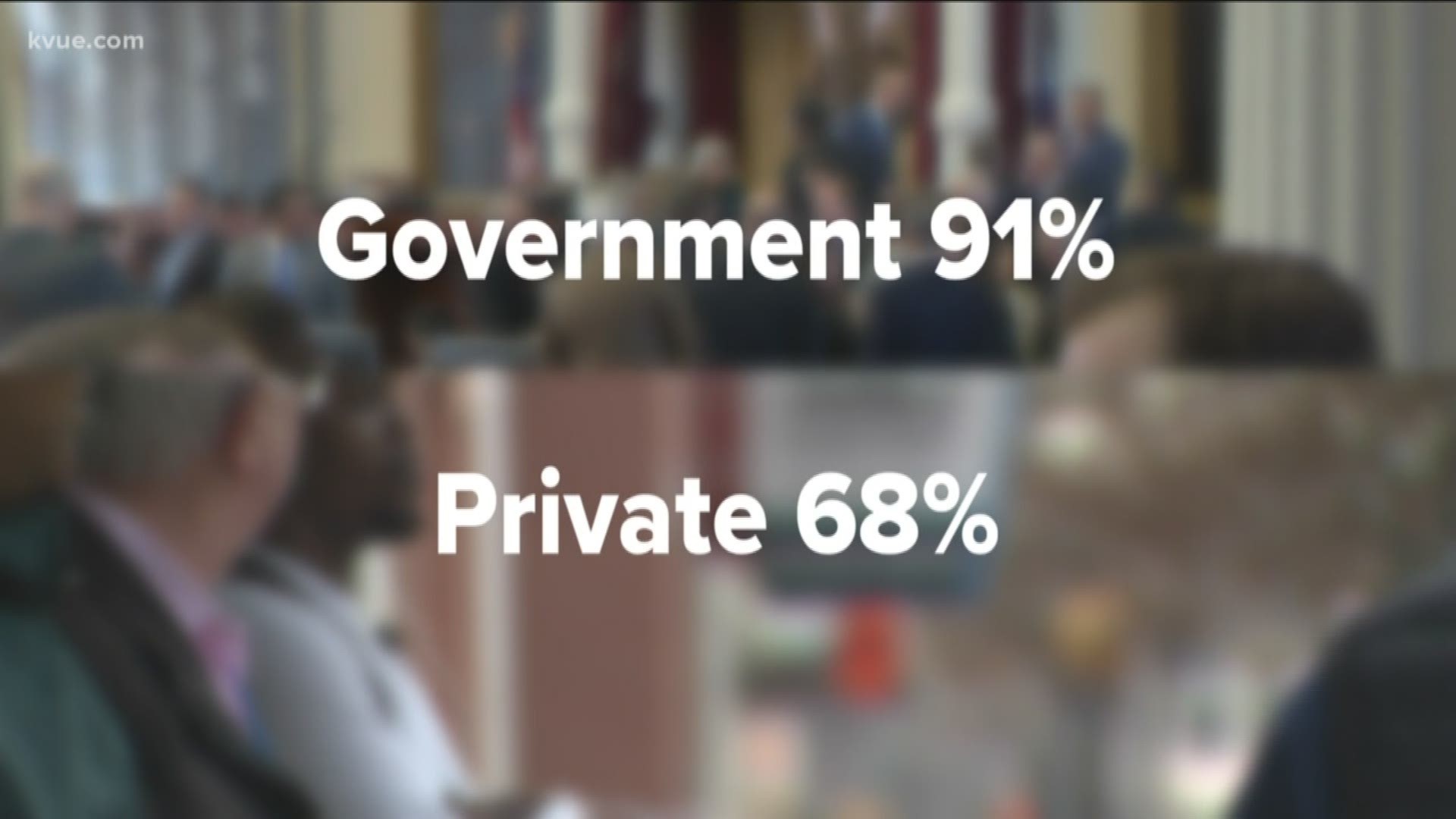AUSTIN, Texas — Last February, Austin became the first city in Texas to pass an ordinance requiring companies to allow employees to earn paid sick leave.
Austin's policy called for one hour of paid time off for every 30 hours worked up to 64 hours or eight days a year.
This is just Austin. We wondered how that compared to other cities in Texas, and how Texas compares to the rest of the country.
RELATED:
Terri Gruca breaks it down.
The Facts
The Center for Public Policy Priorities finds that 40 percent of workers in Texas don't have paid sick leave. And workers in Dallas and San Antonio are more at risk than those working here in Austin.
Dan Ross, an employment law attorney, is concerned about this.
"It prevents turnover of employees, and it protects the health, safety, and welfare of employees, and its the fair thing to do." he said.
Only 10 states and Washington DC currently require paid sick leave, including Connecticut, California, Massachusetts, Oregon, Vermont, Arizona, Washington, Rhode Island, Maryland, and New Jersey.
There are no federal laws that require employers to provide paid sick leave for their employees.
Twenty two states have passed laws like the one proposed here in Texas, laws that prohibit local governments from imposing their own mandates for sick leave.
The majority of those rules have been passed in the last five years, and for one big reason: It's more business friendly.
Government vs. Private Sector
“If you have employees in different parts of the state, you're probably going to end up having to comply with the most restrictive ordinance for all of your employees,” said Ross.
For example, if you are headquartered in Dallas, which currently has no paid sick leave law, but you often do work in Austin or San Antonio where they are trying to pass these ordinances, you must comply with those cities ordinances, even though you are headquartered in Dallas. So as a company, you either have to keep separate databases based on the city, or make a blanket policy that covers it all.
These laws also depend on the type of job you have.
According to the Bureau of Labor, you are far more likely to get paid sick time as a government employee than working in the private sector. Roughly 91 percent of government jobs offer paid sick time, whereas 68 percent of private sector jobs offer paid sick time.
Without a mandatory sick leave law, attorney Dan Ross says your options are limited.
And if you don't like it, you should look for an employer that offers sick pay.

